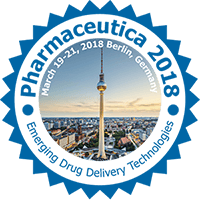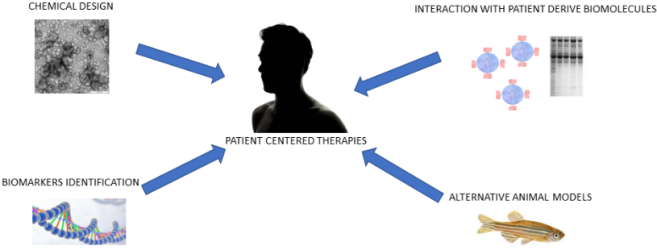
Fabiola Porta
University of Basel, Switzerland
Title: Design of nanosized drug delivery materials: Determinant biophysical aspects for patient oriented nanotherapy
Biography
Biography: Fabiola Porta
Abstract
The development of nanosized pharmaceutical materials is nowadays facing several challenges in order to design nano drug delivery systems to be applied in patients. The design of biocompatible backbone, the identification of pathological biomarkers for targeted disease nanotherapy and the investigation of potential interaction of the nanomaterial with patient derived biomolecules are the main aspects in which science is striving. In our research group, we have defined a new strategy in which the main aspects of nano drug delivery design are tackled together. Identification of pathological biomarkers recurrent in cancer has been chosen as a target strategy for our systems. Cathepsin B, a fundamental enzyme for the maintenance of the cellular homeostasis, has an increased expression in ovarian cancer. Using enzyme cleavable nanoparticles, we have developed a targeted nanomedical approach to deliver bioactive compounds to ovarian cancer cells. However, the design of targeted nanotherapy has to be implemented with further studies considering the potential interactions of nanoparticles with patient derived molecules. For examples, proteins present in the blood plasma can significantly change biophysical properties of nanomaterials. For instance, the deposition of proteins on the surface of nanovesicles can lead to nanomaterials with increased diameters and different surface charges, which are differently interacting with the targeted cells. Through our study, we have deepened our knowledge investigating the formation of a biocorona on polymeric nanovesicles and studying the difference in cellular uptake after the protein layer formation. We have shown that the biocorona formation is deeply influencing the cellular uptake of nanovesicles of cancer cells. Therefore, we believe that this is a fundamental biophysical parameter for the development of novel pharmaceutical nanosized materials. The implementation of our investigations with alternative animal model, render our study approach very complete and more patient oriented.
Figure : General representation of innovative strategy to tackle drug delivery design. From the chemical design of biocompatible nanoparticles to identification of novel biomarkers it is possible to design smart responsive nanosized pharmaceutical materials. In addition, implementation of the nanosystems with studies in alternative models and patient derived biomolecules allows the characterization and the fine tuning of biophysical properties for a patient centered nanotherapy.


